Lorina Stephens's Blog, page 34
February 4, 2015
Hunter's Daughter, by Nowick Gray, releases March 1, 2015
 ISBN 9781927400777 6 X 9 Trade Paperback $24.99
ISBN 9781927400777 6 X 9 Trade Paperback $24.99eISBN $4.99
We are pleased to announce the release of a fascinating murder mystery, Hunter's Daughter, on March 1, 2015, by British Columbia author, Nowick Gray. But to say Hunter's Daughter is a mere murder mystery cannot begin to encompass what impressed us with this novel: the sharp writing, tense plot, deliciously detailed cultural and environmental surround. This is a tense novel that speaks with authority about the ambiguities of culture and region.

The PremiseNorthern Quebec, 1964: Mountie Jack McLain, baffled by a series of unsolved murders, knows the latest case will make or break his career. Eighteen-year-old Nilliq, chafing under the sullen power of her father in a remote hunting camp, risks flight with a headstrong shaman bent on a mission of his own. Their paths intersect in this tense mystery charting a journey of personal and cultural transformation.
 Nowick GrayThe AuthorNowick Gray has contributed short fiction and essays to a variety of periodicals and anthologies since 1976, when he received his MA in Canadian literature from the University of Victoria. His first book-length literary publication, the time-loop adventure novella Rendezvous, was released in 2013, followed by three more titles in 2014: PsyBot, a speculative novel of virtual reality, and two collections of shorter works infused with magic realism, Strange Love / Romance Not For Sale and My Country: Essays and Stories From the Edge of Wilderness.
Nowick GrayThe AuthorNowick Gray has contributed short fiction and essays to a variety of periodicals and anthologies since 1976, when he received his MA in Canadian literature from the University of Victoria. His first book-length literary publication, the time-loop adventure novella Rendezvous, was released in 2013, followed by three more titles in 2014: PsyBot, a speculative novel of virtual reality, and two collections of shorter works infused with magic realism, Strange Love / Romance Not For Sale and My Country: Essays and Stories From the Edge of Wilderness. Much of Nowick's writing draws from his two decades homesteading in the interior mountains of British Columbia. Other adventures include teaching for three years in Quebec Inuit villages -- an experience from which the forthcoming mystery novel Hunter’s Daughter arose -- and indulging a lasting passion for West African drumming, as a student, teacher and performer. Nowick currently works as a freelance copy editor and makes his home in Victoria, BC, with winter travels in warmer locations.
Connect with Nowick through his writings website, NowickGray.com, or through social media: Facebook | Twitter | Blog.The CoverAgain the genius of Jeff Minkevics shines through in this cover. The Ungava region can be very bleak, particularly near pack-ice. As a contrast to that we have the passionate subject of this novel, Nilliq, who often refuses to wear the traditional bird-skin tunic of the Inuit women in the correct fashion: feathers in, for warmth, and in this way the tunic becomes a metaphor for Nilliq's rebellion. And so it is Jeff chose to reveal Nilliq beneath the tradition of the feathers of the bird-skin tunic, and against the harsh, unforgiving background of Canada's far north.
Pre-orderHunter's Daughter is now available for pre-order in both print and eBook.
Format Print $24.99 CAD eBook $4.99 CAD

Published on February 04, 2015 13:10
January 21, 2015
King Kwong, by Paula Johanson, releases March 1, 2015
A revealing and fascinating biography about Larry Kwong, King Kwong: the China Clipper who broke the NHL colour barrier, releases March 1, 2015, written by British Columbia author, Paula Johanson.
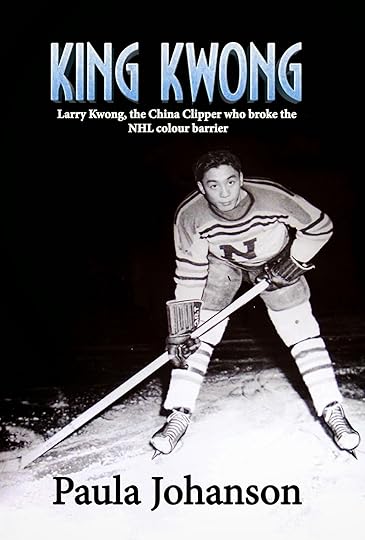 ISBN 9781927400753
ISBN 9781927400753
6 x 9 Trade Paperback, 92 pages, $11.99
eISBN 9781927400760 $4.99
Who is Larry Kwong? He is the Canadian player who broke the colour barrier in the NHL. A man whose professional hockey career statistics include leading the senior leagues for scoring and for low penalty minutes – and a single shift on the ice in an NHL game. He was scouted three times by NHL teams before that game, and courted away from the NHL to a powerful role in three different leagues before retiring.
He is Larry Kwong, a Canadian of Chinese descent born in Vernon BC in 1923, a hard-working man and World War II serviceman who played hockey most of his life.
Paula Johanson explores the life and accomplishments of the China Clipper, Larry Kwong, whose story is one of an indomitable spirit who triumphs in the face of adversity and social discrimination.
Chad Soon, Director of the Greater Vernon Museum and Archives and Okanagan Sports Hall of Fame, says of the biography:
King Kwong is now available for pre-order.
Format Print $11.99 CAD eBook $4.99 CAD

 ISBN 9781927400753
ISBN 97819274007536 x 9 Trade Paperback, 92 pages, $11.99
eISBN 9781927400760 $4.99
Who is Larry Kwong? He is the Canadian player who broke the colour barrier in the NHL. A man whose professional hockey career statistics include leading the senior leagues for scoring and for low penalty minutes – and a single shift on the ice in an NHL game. He was scouted three times by NHL teams before that game, and courted away from the NHL to a powerful role in three different leagues before retiring.
He is Larry Kwong, a Canadian of Chinese descent born in Vernon BC in 1923, a hard-working man and World War II serviceman who played hockey most of his life.
Paula Johanson explores the life and accomplishments of the China Clipper, Larry Kwong, whose story is one of an indomitable spirit who triumphs in the face of adversity and social discrimination.
Chad Soon, Director of the Greater Vernon Museum and Archives and Okanagan Sports Hall of Fame, says of the biography:
Author Paula Johanson brings justice to Kwong’s extraordinary life. All the elements of classic fiction are here, and yet this is riveting history. We follow the ultimate long shot as he chases the 'impossible'…and triggers a shift in his society.The striking cover is by Five Rivers' Art Director, Jeff Minkevics.
King Kwong is now available for pre-order.
Format Print $11.99 CAD eBook $4.99 CAD

Published on January 21, 2015 03:00
January 19, 2015
Marie Powell appearing at Regina Public Library Film Theatre
 Marie PowellMarie Powell, author of the forthcoming historical fantasy, Hawk, (releasing August 1, 2015) will be appearing at the Regina Public Library Film Theatre, Saturday, January 24, 2015, 1:00-2:00 PM.
Marie PowellMarie Powell, author of the forthcoming historical fantasy, Hawk, (releasing August 1, 2015) will be appearing at the Regina Public Library Film Theatre, Saturday, January 24, 2015, 1:00-2:00 PM.
Powell will be presenting a talk on northern Welsh castles, ranging from the English castles of Edward I to Welsh castles pre-dating 1282. This is part of RPL's Travel Weekend. For all ages. Location: Regina Public Library Film Theatre, Central Adult branch. * Registration required.
 Rhuddlan Castle
Rhuddlan Castle
Published on January 19, 2015 11:24
January 15, 2015
Sword and Shadow, Book 6: The Rune Blades of Celi releasing March 1, 2015
The sixth book in Ann Marston's epic and enchanting Rune Blades of Celi releases March 1, 2015.
 ISBN 9781927400814
ISBN 9781927400814
6 x 9 trade paperback, $31.99
eISBN 9781927400821
EPUB, MOBI, PDF $9.99
The tale continues generations after the initial Kingmaker's Sword, and now the bold Celae have lived in exile, banished from their enchanted isle of Celi by the Somber Riders, whose leader, a dark sorcerer, cast an evil spell no trespasser can survive. But a glorious legend promises victory for the exiles. Two twins — princes of royal blood and secret birth — will take the Celae back home.
This is a beautifully drawn tale, with characters who rise off the page, a perfect novel for a cold winter's cuddle in your favourite chair, or a summer haunt in the shade of a whispering tree.
The cover is by Five Rivers' artistic director, Jeff Minkevics,
Now available for pre-order.
Format Print $31.99 CAD eBook $9.99 CAD

 ISBN 9781927400814
ISBN 9781927400814 6 x 9 trade paperback, $31.99
eISBN 9781927400821
EPUB, MOBI, PDF $9.99
The tale continues generations after the initial Kingmaker's Sword, and now the bold Celae have lived in exile, banished from their enchanted isle of Celi by the Somber Riders, whose leader, a dark sorcerer, cast an evil spell no trespasser can survive. But a glorious legend promises victory for the exiles. Two twins — princes of royal blood and secret birth — will take the Celae back home.
This is a beautifully drawn tale, with characters who rise off the page, a perfect novel for a cold winter's cuddle in your favourite chair, or a summer haunt in the shade of a whispering tree.
The cover is by Five Rivers' artistic director, Jeff Minkevics,
Now available for pre-order.
Format Print $31.99 CAD eBook $9.99 CAD

Published on January 15, 2015 07:22
January 5, 2015
Thus the marathon begins
Here we are; first Monday of 2015. Robert and I have been hard at it from the first bell of the year.

Robert's working on several manuscripts, a few of which are new offerings from Dave Duncan. I'm presently finalizing the layout for the third book in the Shakespeare for Slackers series, this one a weird and wonderful interpretation of Macbeth.
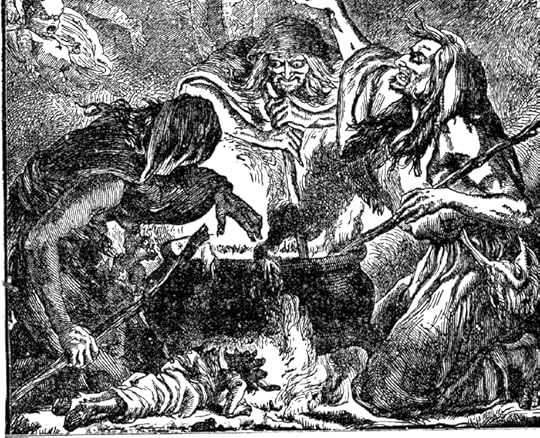
Later in the week I'll be reading a fascinating SF submission, finalize the last tweaks to the sixth novel in Ann Marston's Rune Blades of Celi series, Sword and Shadow, and then set to the layout of that.
Just as a tease, here's the cover fresh from the genius of Jeff Minkevics.

If there's time left in the week, I'll be turning my attention to Alicia Hendley's sequel, Type2.
Of course all that doesn't encompass the myriad details of daily work here at Five Rivers. So, busy week, my lovelies. Best get to it.

Robert's working on several manuscripts, a few of which are new offerings from Dave Duncan. I'm presently finalizing the layout for the third book in the Shakespeare for Slackers series, this one a weird and wonderful interpretation of Macbeth.

Later in the week I'll be reading a fascinating SF submission, finalize the last tweaks to the sixth novel in Ann Marston's Rune Blades of Celi series, Sword and Shadow, and then set to the layout of that.
Just as a tease, here's the cover fresh from the genius of Jeff Minkevics.

If there's time left in the week, I'll be turning my attention to Alicia Hendley's sequel, Type2.
Of course all that doesn't encompass the myriad details of daily work here at Five Rivers. So, busy week, my lovelies. Best get to it.
Published on January 05, 2015 07:47
December 24, 2014
From Five Rivers to you, this festive season
One of the joys I've had in my life is singing carols with a group of friends in the past. We'd gather in the pub in Mono Centre called Peter's Cellars (I know, cute, kitschy name!), which truly was a cellar, all parged, random stone walls, wonderful hewn beams, great food, fabulous libations. Our troupe, often some 20 or so of us, would deck ourselves in medieval costume, bring along flutes, bodhrans, guitars and other tim-tammy-jingle-whistle thingies, and let our voices free in gleeful, joyous abandon.
Time goes by, the venue was no longer available. The group evolved, as is the wont of life. But those memories of harmonies, music, rhythms, joy will always remain.
So, instead of prodding Five Rivers' patrons to go out and purchase any of the books in our fabulous catalogue, I thought I'd introduce to you a group of remarkable, amazing singers only recently become familiar to me, the Pentatonix, singing one of my favourite carols.
And in that spirit, all of us at Five Rivers wish you joy this festive season; peace, prosperity and good health in the new year.

Time goes by, the venue was no longer available. The group evolved, as is the wont of life. But those memories of harmonies, music, rhythms, joy will always remain.
So, instead of prodding Five Rivers' patrons to go out and purchase any of the books in our fabulous catalogue, I thought I'd introduce to you a group of remarkable, amazing singers only recently become familiar to me, the Pentatonix, singing one of my favourite carols.
And in that spirit, all of us at Five Rivers wish you joy this festive season; peace, prosperity and good health in the new year.
Published on December 24, 2014 03:00
December 18, 2014
In preparation of our next reading period
Five Rivers’ reading period opens up again February 1 to 14, 2015.

With the hope of creating clarity for writers who are considering submitting to us, we strongly recommend you view our guidelines in order to save yourselves and us a lot of angst.
To give you some idea of how our selections went in 2014, Robert and I have put together some semblance of analysis, which may or may not be significant of anything, but is most assuredly an accurate view of what occurred in 2014. Beyond that, well, you might try casting knucklebones, or scrying in a bowl of water in a silver dish, or staring at clouds.

Our acceptance rateRobert's Acceptance Rate: 53% were rejected outright
Lorina’s Acceptance Rate: 46% were rejected outright
Robert comments: Relatively few of the submissions I rejected were badly written. Most were competent, but generic. A few showed real potential, but would have taken more work to edit than I have time to commit to them; or they had potential, but I was the wrong editor for that manuscript. (A rejection is not always about the manuscript being weak; sometimes it is a perfectly good manuscript, but not right for that publisher. I won't take on a manuscript if I don't love the book, because I'm not going to invest a month of my life in a project I won't enjoy, or to one that's outside my expertise. Indeed, the hardest manuscripts to edit are the ones that are competently written, that have no obvious flaws, but just don't seem to sing. One needs to find the editor that can hear the song that could come from that manuscript. One of the manuscripts from a new author I rejected subsequently sold to another press (so a rejection is not necessarily the end of the world).
Lorina comments: I would have to say of the manuscripts which I rejected outright, most were badly written, with clumsy writing, cardboard characters, cliché phrasing and plot. Given I read for both work and pleasure about nine books a month, my tolerance is likely lower than Robert’s. On the other hand it could simply mean I’m just hard to please and suffer from a dose of hubris. One thing Robert and I do emphatically agree on is the work needs to sing. As I’ve said in previous blog posts, write me a story, tell me a tale, be Shcheherazade and bewitch me.
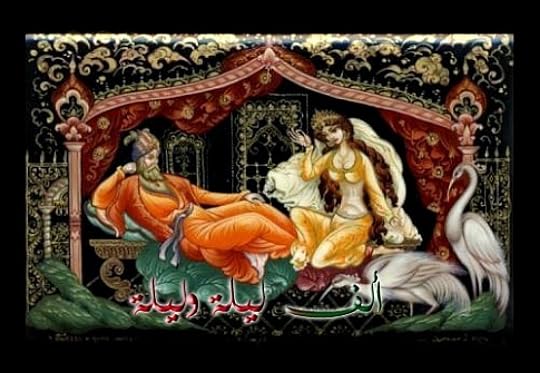
For Robert, 30% of the manuscripts he received are still under review; for Lorina, 1%. Why the difference? Five Rivers is very lucky to have Robert’s time, in that although semi-retired as a professor at the University of Lethbridge, his time is still very much in demand, and so whatever he affords us we gratefully accept. For Lorina, Five Rivers is her main occupation and so manuscripts tend to flow through her hands faster.
The 'under review' category are solicited manuscripts that came in outside the official Feb review period, usually through personal contacts or pitches at conventions. The longest a manuscript has sat with Robert in 2014 is three months...but those are manuscripts that have already passed through the first screening; they're books he’d like to acquire if he could work them into his editing schedule, but in the end, he’ll have to reject most of them because Five Rivers only have so many slots in our publishing schedule.
Of the manuscripts Lorina received, the longest a manuscript has sat is about eight weeks, and in those cases were also screened through a query process. It is likely those remaining for Lorina to read will be accepted, as if an author makes it through that first vetting, it’s likely a publishing agreement will be reached, but not always guaranteed.
Of the submissions Robert received in 2014, 17% received contracts, while Lorina’s resulted in 23%.

It's hard to resist a brilliant manuscript, but we're developing a backlog, so that figure is likely to go down in 2015, especially in light of the fact we are committed to releasing 29 books.
Identifying what we're looking for in a manuscript is difficult. Great book obviously, but even we don't always know what we will like. For example, Robert opened a submission last month of a genre he doesn’t read, set in a locale he hates, on a topic that bores him, fully expecting it to be a fast reject, something he could get off his desk quickly. He had already started the "thanks for letting us see this, but this really isn't what Five Rivers publishes" letter in his head, but damn if the writer didn't catch his attention on the first page and keep him riveted through the first six chapters. There was this scene about castor oil…. He was forced to move the manuscript into the 'will have to read closely, because am thinking seriously about buying it' stack. Who could have predicted that? Robert says, “How do I ask to see more manuscripts that surprise me with a castor oil scene? I mean, that would solicit entirely the wrong sort of book.”

DemographicsOf the submissions Robert received, 63% of submissions were by males, and 37% female; for Lorina 58% male versus 42% female.
The acceptance rate, however, was closer to fifty-fifty (exactly 50/50 if you count titles rather than authors, because we negotiated a couple of two and three book contracts in there.) Gender doesn’t really play into the decision at all, including alternate orientations. And frankly we have no idea what is anyone's ethnicity, so as long as the manuscript is in English, none of this is an issue for Five Rivers.
36% of all submissions were from professional writers in Robert’s year, whereas 99% were for Lorina.
16% of submissions were from writers that have already had five or more books published by major presses; of those, Robert rejected 40% outright. The other 20% were from professional writers/editors with short fiction, magazine, or technical writing credits; of those 33% were rejected outright, and 67% remain under review (see above). 7% were submitted through a literary agent. Having an agent probably did force Robert to get around to reviewing the manuscript slightly sooner than he might have otherwise, but since Five Rivers doesn't offer advances, there is not a lot else an agent can negotiate that would be worth their 15%. Since Five Rivers is open to unsolicited manuscripts the first two weeks of every February, one really does not need an agent to submit.
Of the manuscripts we viewed, Lorina received 35% from previously self-published writers, while Robert received 7%.
All of those were rejected, but that's not policy, just what happened in 2014.
Genre7% of submissions were nonfiction.
Of the 93% of submissions that were fiction:
40% YA28% fantasy20% mystery/thriller/spy5% historical5% Canlit5% other2% science fictionOf the books we bought in 2014:20% were nonfiction20% were CanLit40% were fantasy10% were science fiction5% were historical fiction5% were YA fictionBut that just reflects what happened to come our way in 2014; as long as the manuscript matches our general guidelines (see www.fiveriverspublishing.com/p/guidelines.html) we'll take a look at whatever you have.


With the hope of creating clarity for writers who are considering submitting to us, we strongly recommend you view our guidelines in order to save yourselves and us a lot of angst.
To give you some idea of how our selections went in 2014, Robert and I have put together some semblance of analysis, which may or may not be significant of anything, but is most assuredly an accurate view of what occurred in 2014. Beyond that, well, you might try casting knucklebones, or scrying in a bowl of water in a silver dish, or staring at clouds.

Our acceptance rateRobert's Acceptance Rate: 53% were rejected outright
Lorina’s Acceptance Rate: 46% were rejected outright
Robert comments: Relatively few of the submissions I rejected were badly written. Most were competent, but generic. A few showed real potential, but would have taken more work to edit than I have time to commit to them; or they had potential, but I was the wrong editor for that manuscript. (A rejection is not always about the manuscript being weak; sometimes it is a perfectly good manuscript, but not right for that publisher. I won't take on a manuscript if I don't love the book, because I'm not going to invest a month of my life in a project I won't enjoy, or to one that's outside my expertise. Indeed, the hardest manuscripts to edit are the ones that are competently written, that have no obvious flaws, but just don't seem to sing. One needs to find the editor that can hear the song that could come from that manuscript. One of the manuscripts from a new author I rejected subsequently sold to another press (so a rejection is not necessarily the end of the world).
Lorina comments: I would have to say of the manuscripts which I rejected outright, most were badly written, with clumsy writing, cardboard characters, cliché phrasing and plot. Given I read for both work and pleasure about nine books a month, my tolerance is likely lower than Robert’s. On the other hand it could simply mean I’m just hard to please and suffer from a dose of hubris. One thing Robert and I do emphatically agree on is the work needs to sing. As I’ve said in previous blog posts, write me a story, tell me a tale, be Shcheherazade and bewitch me.

For Robert, 30% of the manuscripts he received are still under review; for Lorina, 1%. Why the difference? Five Rivers is very lucky to have Robert’s time, in that although semi-retired as a professor at the University of Lethbridge, his time is still very much in demand, and so whatever he affords us we gratefully accept. For Lorina, Five Rivers is her main occupation and so manuscripts tend to flow through her hands faster.
The 'under review' category are solicited manuscripts that came in outside the official Feb review period, usually through personal contacts or pitches at conventions. The longest a manuscript has sat with Robert in 2014 is three months...but those are manuscripts that have already passed through the first screening; they're books he’d like to acquire if he could work them into his editing schedule, but in the end, he’ll have to reject most of them because Five Rivers only have so many slots in our publishing schedule.
Of the manuscripts Lorina received, the longest a manuscript has sat is about eight weeks, and in those cases were also screened through a query process. It is likely those remaining for Lorina to read will be accepted, as if an author makes it through that first vetting, it’s likely a publishing agreement will be reached, but not always guaranteed.
Of the submissions Robert received in 2014, 17% received contracts, while Lorina’s resulted in 23%.

It's hard to resist a brilliant manuscript, but we're developing a backlog, so that figure is likely to go down in 2015, especially in light of the fact we are committed to releasing 29 books.
Identifying what we're looking for in a manuscript is difficult. Great book obviously, but even we don't always know what we will like. For example, Robert opened a submission last month of a genre he doesn’t read, set in a locale he hates, on a topic that bores him, fully expecting it to be a fast reject, something he could get off his desk quickly. He had already started the "thanks for letting us see this, but this really isn't what Five Rivers publishes" letter in his head, but damn if the writer didn't catch his attention on the first page and keep him riveted through the first six chapters. There was this scene about castor oil…. He was forced to move the manuscript into the 'will have to read closely, because am thinking seriously about buying it' stack. Who could have predicted that? Robert says, “How do I ask to see more manuscripts that surprise me with a castor oil scene? I mean, that would solicit entirely the wrong sort of book.”

DemographicsOf the submissions Robert received, 63% of submissions were by males, and 37% female; for Lorina 58% male versus 42% female.
The acceptance rate, however, was closer to fifty-fifty (exactly 50/50 if you count titles rather than authors, because we negotiated a couple of two and three book contracts in there.) Gender doesn’t really play into the decision at all, including alternate orientations. And frankly we have no idea what is anyone's ethnicity, so as long as the manuscript is in English, none of this is an issue for Five Rivers.
36% of all submissions were from professional writers in Robert’s year, whereas 99% were for Lorina.
16% of submissions were from writers that have already had five or more books published by major presses; of those, Robert rejected 40% outright. The other 20% were from professional writers/editors with short fiction, magazine, or technical writing credits; of those 33% were rejected outright, and 67% remain under review (see above). 7% were submitted through a literary agent. Having an agent probably did force Robert to get around to reviewing the manuscript slightly sooner than he might have otherwise, but since Five Rivers doesn't offer advances, there is not a lot else an agent can negotiate that would be worth their 15%. Since Five Rivers is open to unsolicited manuscripts the first two weeks of every February, one really does not need an agent to submit.
Of the manuscripts we viewed, Lorina received 35% from previously self-published writers, while Robert received 7%.
All of those were rejected, but that's not policy, just what happened in 2014.
Genre7% of submissions were nonfiction.
Of the 93% of submissions that were fiction:
40% YA28% fantasy20% mystery/thriller/spy5% historical5% Canlit5% other2% science fictionOf the books we bought in 2014:20% were nonfiction20% were CanLit40% were fantasy10% were science fiction5% were historical fiction5% were YA fictionBut that just reflects what happened to come our way in 2014; as long as the manuscript matches our general guidelines (see www.fiveriverspublishing.com/p/guidelines.html) we'll take a look at whatever you have.
Published on December 18, 2014 13:46
December 1, 2014
Looking back, looking forward
 Michelangelo's Dawn and Dusk sculpture
Michelangelo's Dawn and Dusk sculptureMedici ChapelIt's December and time for reflection on what we've achieved and where we're going. In the past year, Five Rivers has seen our catalogue expand from 34 books to 46.
The 2014 titles are:





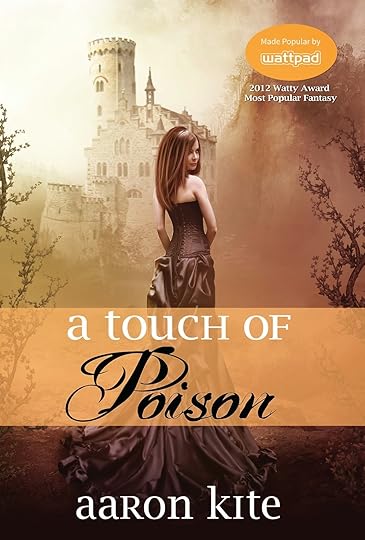

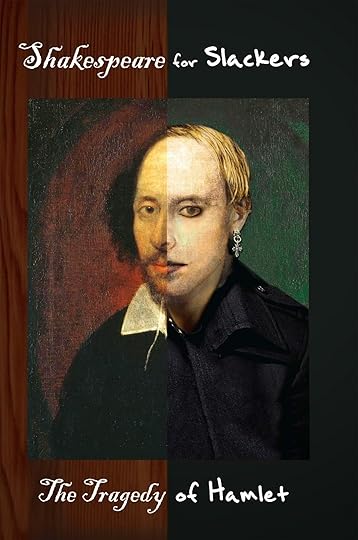




Of the authors published in 2014, two of the nine authors made their debut. And of the many submissions we received this year, only 0.31% resulted in a publishing contract. In a later post, we’ll discuss the problems we frequently encounter with manuscripts, what we look for, what we don’t, and what will often result in a quick acceptance or rejection.
This year there have been setbacks as well as growth. We terminated our agreement with Iambik Audiobooks because of their lack of timely reporting and payment. Not to be daunted, we continue to investigate avenues for audiobook production of our catalogue and hope to have a solution to that in 2015.
We were also pleased to welcome aboard our intern, Jill Cabrera, who oversees some of our social media, as well as maintenance of our metadata.
Looking forward, 2015 will see our catalogue explode with the release of 27 books.
The majority of those are part of the Prime Ministers of Canada series we’re publishing, a project of which we’re very proud. When Nate Hendley came to us in 2012 with the view to finding a home for the orphaned Prime Minister books from now defunct JackFruit Press, we were pleased to undertake breathing new life into the incomplete series.
The original series had been targeted to early primary school students, more of a graphic novel approach. We decided to expand the demographic for the series so the books would be readable by, and appeal to, senior primary through young adults, with more of a journalistic, biographical tone than a graphic novel, thereby giving the Prime Minister’s office the dignity and respect it should command, while still retaining engaging readability. Anyone who thinks Canadian history is boring should read this series. There’s enough triumph and tyranny, subterfuge and noble (or Nobel) enterprise to interest even the most jaded reader.
And so, we are pleased to present to you the lineup for 2015:
February
Sword and Shadow, Book 6: The Rune Blades of Celi, by Ann MarstonMarch
King Kwong: Larry Kwong, the China Clipper who broke the NHL colour barrier, by Paula JohansonApril
The Tattooed Rose, Book 3, by Susan MacGregor
Shakespeare for Readers’ Theatre, Book 2: Shakespeare’s Greatest Villains: The Merry Wives of Windsor; Othello, the Moor of Venice; Richard III; King Lear, by John Poulsen
The Prime Ministers of Canada: John Diefenbaker, by Lanny Boutin
The Prime Ministers of Canada: Lester B. Pearson, by Gordon Gibb
The Prime Ministers of Canada: Pierre Trudeau, by Paula Johanson
The Prime Ministers of Canada: Robert Borden, by Dorothy Pedersen
The Prime Ministers of Canada: Alexander Mackenzie, by Elle-Andra Warner
Eye of Strive, by Dave Duncan
Tower in the Crooked Wood, by Paula JohansonMay
Chronicles of Ivor, by Dave DuncanAugust
The Prime Ministers of Canada: John S.D. Thompson, by Elle-Andra WarnerOctober
The Prime Ministers of Canada: Charles Tupper, by Paula Johanson
Hawk, by Marie Powell
Cat’s Pawn, by Leslie GadallahDecember
Type2, by Alicia Hendley
Bane’s Choice, Book 7: The Rune Blades of Celi, by Ann Marston
The Prime Ministers of Canada: Arthur Meighen, by Dorothy Pedersen
The Prime Ministers of Canada: William Lyon Mackenzie King, by Nate Hendley
The Prime Ministers of Canada: Joe Clark, by Lanny Boutin
The Prime Ministers of Canada: Jean Chretien, by Nate Hendley
The Prime Ministers of Canada: Paul Martin, by Elle-Andra Warner
Beyond Media Literacy: New Paradigms in Media Education, by Colin Scheyen
The Prime Ministers of Canada: John A. Macdonald, by Mark Shainblum
The Prime Ministers of Canada: Wilfred Laurier, by Mark Shainblum
We hope you will find our 2015 offerings of interest, and continue to journey with us on this never dull, always fascinating voyage on the good ship, Five Rivers.

Published on December 01, 2014 13:10
November 21, 2014
Why Five Rivers Publishing exists
I don't often intrude with personal paradigm and thought here, have always felt it too personal, too crass to discuss in public these ideals which guide my life and thereby this publishing house. But today, inspired by a voice I've often read and always admired, I break with that self-imposed restriction.
And so first, the muse:
Although Le Guin speaks from an American perspective, the tenets of her address hold true for this very Canadian publishing house, and indeed form the framework upon which we've built, and continue to build, that is, quite simply, a commitment to bring publishing back to uncompromising personal editors where it belongs, rather than focus-group marketing.
Coupled with that we have an environmental strategy that embraces print-on-demand and digital technologies, along with a strict no-returns policy which has more to do with the imperative of printing only the books required for sale, rather than printing books for a marketing display in a large chain which will end up being returned in 90, 180 or 365 days.
Here at Five Rivers we relish the opportunity to work with new authors, new voices, illuminating the unique and varied culture of this diverse and enormous country. We cherish the opportunity to allow known authors the latitude for experimentation discouraged by the Big Five.
We believe in the power of the story-teller, whether that story-teller weaves a fabric of fiction or reality. In a way, we attempt to emulate the story-teller's circle of our First Nations. It is through such narratives we, as a nation, gain perspective about where we've been, where we are, and where we might be going. It opens a discussion, stimulates conjecture. Perhaps, even, allows us to better understand and continue to work toward enlightenment, accommodation, and equitable harmony.
Yes, we believe the power of literature, the power of the story-teller, has the ability to shape nations, and inform and inspire people.
Moreover, we believe this paradigm of publishing can form a solid business foundation. It is possible to marry ideal and art to business and commerce without compromising standards of excellence.
I've always said to my kids, dreams do come true; they just take a lot of work.
And so we at Five Rivers continue to work to showcase Canadian storytellers of both fiction and non-fiction, with the primary criterion of publishing books because of their beauty, importance and relevance, rather than their commercial potential. We feel this is as it should be. And we hope you will join us in this journey, and share your thoughts and your voices with us.
And so first, the muse:
Although Le Guin speaks from an American perspective, the tenets of her address hold true for this very Canadian publishing house, and indeed form the framework upon which we've built, and continue to build, that is, quite simply, a commitment to bring publishing back to uncompromising personal editors where it belongs, rather than focus-group marketing.
Coupled with that we have an environmental strategy that embraces print-on-demand and digital technologies, along with a strict no-returns policy which has more to do with the imperative of printing only the books required for sale, rather than printing books for a marketing display in a large chain which will end up being returned in 90, 180 or 365 days.
Here at Five Rivers we relish the opportunity to work with new authors, new voices, illuminating the unique and varied culture of this diverse and enormous country. We cherish the opportunity to allow known authors the latitude for experimentation discouraged by the Big Five.
We believe in the power of the story-teller, whether that story-teller weaves a fabric of fiction or reality. In a way, we attempt to emulate the story-teller's circle of our First Nations. It is through such narratives we, as a nation, gain perspective about where we've been, where we are, and where we might be going. It opens a discussion, stimulates conjecture. Perhaps, even, allows us to better understand and continue to work toward enlightenment, accommodation, and equitable harmony.
Yes, we believe the power of literature, the power of the story-teller, has the ability to shape nations, and inform and inspire people.
Moreover, we believe this paradigm of publishing can form a solid business foundation. It is possible to marry ideal and art to business and commerce without compromising standards of excellence.
I've always said to my kids, dreams do come true; they just take a lot of work.
And so we at Five Rivers continue to work to showcase Canadian storytellers of both fiction and non-fiction, with the primary criterion of publishing books because of their beauty, importance and relevance, rather than their commercial potential. We feel this is as it should be. And we hope you will join us in this journey, and share your thoughts and your voices with us.

Published on November 21, 2014 09:05
November 14, 2014
Shakespeare…. You may have heard of him.
 In the spirit of Shakespeare dramatics, drum roll please… Shakespeare for Slackers: Hamlet is near.
In the spirit of Shakespeare dramatics, drum roll please… Shakespeare for Slackers: Hamlet is near.Five Rivers Publishing is happy to release the second instalment of the outrageously funny Shakespeare for Slackers on December 1, 2014.
Aaron Kite believes Shakespeare wrote for the common people, not for English majors, so in this Slacker version of The Tragedy of Hamlet, all of ye can enjoy.
 Aaron Kite, Author of Shakespeare for Slackers
Aaron Kite, Author of Shakespeare for Slackers

I had the chance to interview Aaron Kite about his thoughts on Shakespeare, Hamlet and the slackers of this generation.
JC: First things first, do you like Shakespeare as a writer? How about Hamlet?
AK: I love Shakespeare, actually... he was 'inflicted' upon me in Jr high school, but I very quickly began to grasp some of the things he was doing, and started appreciating both the prose and the humour. By the time I was in high school I was reading his plays in my free time. And Hamlet, well, I spent the vast majority of my time in high school and college dressed in nothing but black. How could I not appreciate a guy like Hamlet?
JC: What motivated you to write Shakespeare for Slackers?
AK: Quite honestly, I really enjoyed the fact that Shakespeare was a guy who wrote work for the ordinary, 'common' folk back in the day. His plays were popular enough that they ended up being performed for royalty, but that's not the audience he was targeting back then. He wanted the stories he wrote to be accessible, and used the language and humour of the times — not what was in fashion back then, but what regular people understood best.
JC: Describe your regular “Slacker”?
AK: Generally, someone who is considered a 'slacker' is going to do the bare minimum, no matter what. It's a point of personal pride. So, the idea of translating something as timeless as Shakespeare in a way that could not only be readily understood nowadays, but that could actually capture the imagination of someone like that and cause them to grasp the fundamentals of the actual story seemed like a fun challenge.
Plus, I'm almost certain that Shakespeare can't actually sue me for doing it, so that's gravy. Don't quote me though.
JC: What do you want your readers to take away from reading Shakespeare for Slackers?
AK: The approach is actually kind of multi-pronged. I'm quite (very) obviously not translating the text verbatim, so the goal is to tell more or less the same story but from a more modern perspective. At the same time, there are jokes included in the translation that you'll only really get if you know and understand the original Shakespeare, and what he was attempting to say/do. Sometimes the humour is all about subverting what he was attempting to say, or intentionally misunderstanding it via translation. Sometimes it's about putting a completely modern spin on the ideas that he was trying to convey hundreds of years ago. If you don't know Shakespeare, you'll likely be entertained by the translation, and the story it tells. If you do know Shakespeare, you might find humour in some of the tongue-in-cheek absurdities that present themselves through the wildly inaccurate 'translations'.
JC: The Tragedy of Hamlet is a classic. What do you think makes it a classic? Do you think the tragedy genre is still relevant for today’s generation?
AK: Hamlet sort of touched a nerve in people that still resonates to this day. Revenge, remorse, the idea that people living a supposedly 'ideal life' could have to wrestle with the sort of emotions he did, all that. It's a classic because we all tend to think in terms of how things affect us, personally, and his is merely an example of how your position or station does not make you exempt from these particular feelings. I think something like that is relevant no matter what generation you're dealing with.
JC: How difficult was it to write? Did you take any precautions? Were there scenes more difficult to use humour on?
JC: To be completely honest, I do this sort of thing in order to take a break from actually writing, which is hard work. This stuff is so much easier. The humour comes from just trying to think how someone today might express the same sentiment as the character who is currently speaking. That and the fact that I can be particularly random and silly at times. Turning something like "Oh, what a rogue and peasant slave am I," into "Boy, do I ever suck," well, it just kind of writes itself sometimes.
JC: This is the second installment for Shakespeare for Slackers, the first being Romeo and Juliet. Was writing the second harder or easier? Or just about the same? Did you learn anything from Romeo and Juliet that you applied to the writing of the slacker version of Hamlet?
AK: Actually, Hamlet is the third one that I did. I started with Romeo and Juliet, then went on to Macbeth, then Hamlet. All three were a goldmine when it came to this sort of activity, to be honest. Romeo and Juliet were young, love-struck kids... hardly a rarity nowadays. Macbeth clearly had some impulse control issues as a result from his time on the front lines, coming back home and making some rather poor political decisions. And Hamlet, well, he dressed entirely in black and saw ghosts. Heck, I've hung out with guys like that, back in the day.
But each one ends up informing the next in some way, no matter what. You just kind of get into the groove, taking huge chunks of literary genius and turning it into graffiti, more or less. In the end, however, I think that's what Bill would have wanted.
At least, I hope it is. Otherwise, he might end up haunting me.

Published on November 14, 2014 12:10



